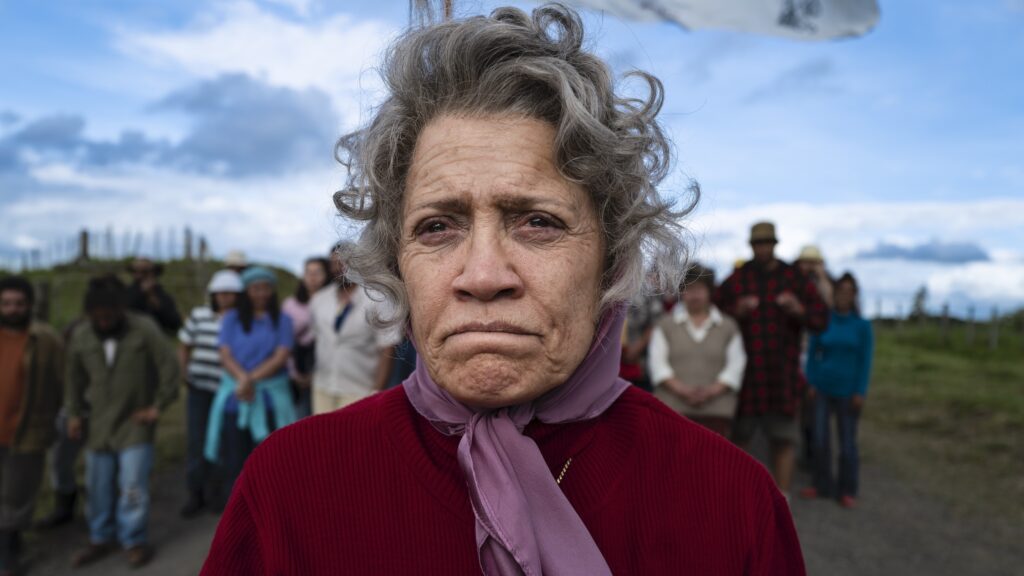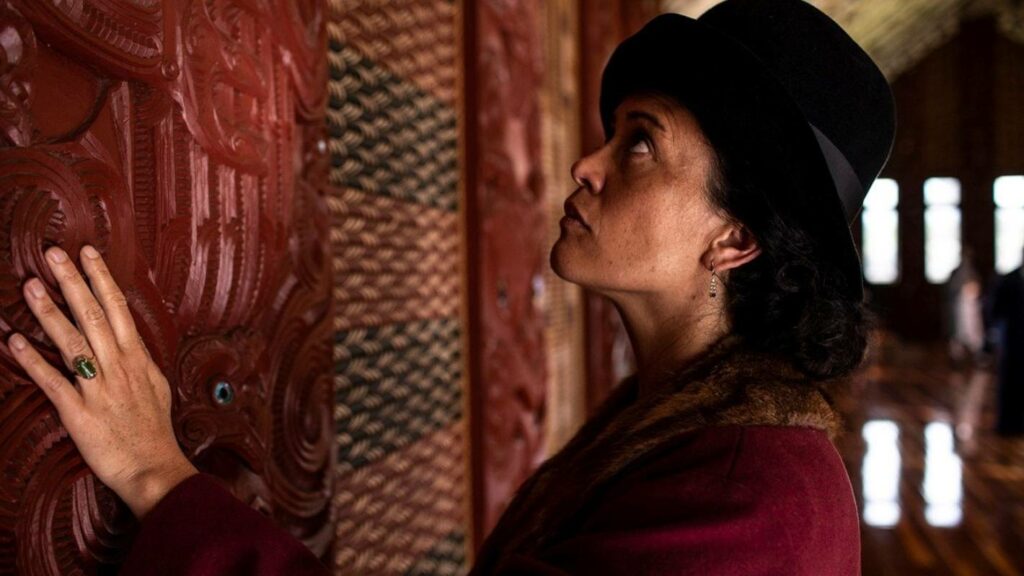Dame Whina Cooper is a national icon of New Zealand. In 1975, she led a crowd of thousands on a nation-long walk to Wellington to demand the protection of Māori land rights stripped away by decades of colonial exploitation. In February 2020, a memorial to her was unveiled in her native community in Hokianga. Now, James Napier Robertson and Paula Whetu Jones’ film recounts Cooper’s sensational story for the benefit of a new audience, almost fifty years from that historic day. Whina doesn’t try to reinvent the historical biopic but then feels no need to do so, instead finding its strength from an empathetic depiction of Maori identity, struggle, and pride.

Cooper’s life, from the day she is born to her struggles as a wife, mother, and activist, all centre on being recognised for who she is. Constantly on the receiving end of indignation and scorn, often from her own people, she nonetheless persists in what she knows to be right. At times Cooper’s amazing story risks defying a cinematic retelling, with certain sequences feeling like they stretch out too long and slow down the immediacy of the film’s message. More often than not, however, this focus on the titular hero makes Whina such a soaring success.
The screenplay switches from Cooper’s past to the film’s present intermittently, implying parallels in different phases of her life and where she is now as well as emphasising the scale of social change that Cooper experiences over the years. It makes for compelling viewing, and cinematographer Leon Narbey’s stunning wide shots of the landscape make clear what Cooper is fighting for. The battle for Māori recognition is tied closely to Cooper’s journey, one marked by constant resistance against those people and things that would grind her down. “I have been fighting my whole life,” as she puts it in one scene, but this fight is captured with a sincerity – and at times, a solemness – that is never less than respectful.
Cooper herself is a vividly imagined character, played jointly by Miriama McDowell and Once Were Warriors’ Rena Owen (as younger and elderly Cooper, respectively). Both bring warmth to Cooper and a vivid, steely intensity, while the continuity in mannerisms and personality between the actors is deeply impressive. Both McDowell and Owen thrive when delivering their rousing speeches to crowds of onlookers, scenes stirring enough to rouse something up deep from inside of you. Whether this is anger at those who have done her wrong or admiration for what Cooper is doing to put it right isn’t clear. McDowell particularly captures the most difficult moments of Cooper’s life with vivid emotion. The film manages to elicit powerful feelings of love and frustration, and Whina will leave a distinctive impression on your formulations of justice.

The finale is both unbearably sad and joyously happy, blending filmed and archive news footage to remarkable effect. As the two narrative arcs come together and the full scale of Cooper’s achievements becomes clear, Robertson and Jones work wonders to bring the film home on such a wonderful, moving high note. It works because Cooper is a character you come to care deeply about, and maintaining this level of engagement throughout Whina gives its conclusion an added impact – enough to drive you to tears.
For a film of such intimacy, Whina feels like a film born for the big screen. The final twenty minutes, in particular, are moving beyond compare. It is as much a lesson from history as it is a profoundly intimate portrait of an individual, but rides both of these waves with grace and beauty to spare. It is a fitting tribute to such a significant figure of 20th-century Māori history.
Whina screened as part of the 2022 Edinburgh International Film Festival.
